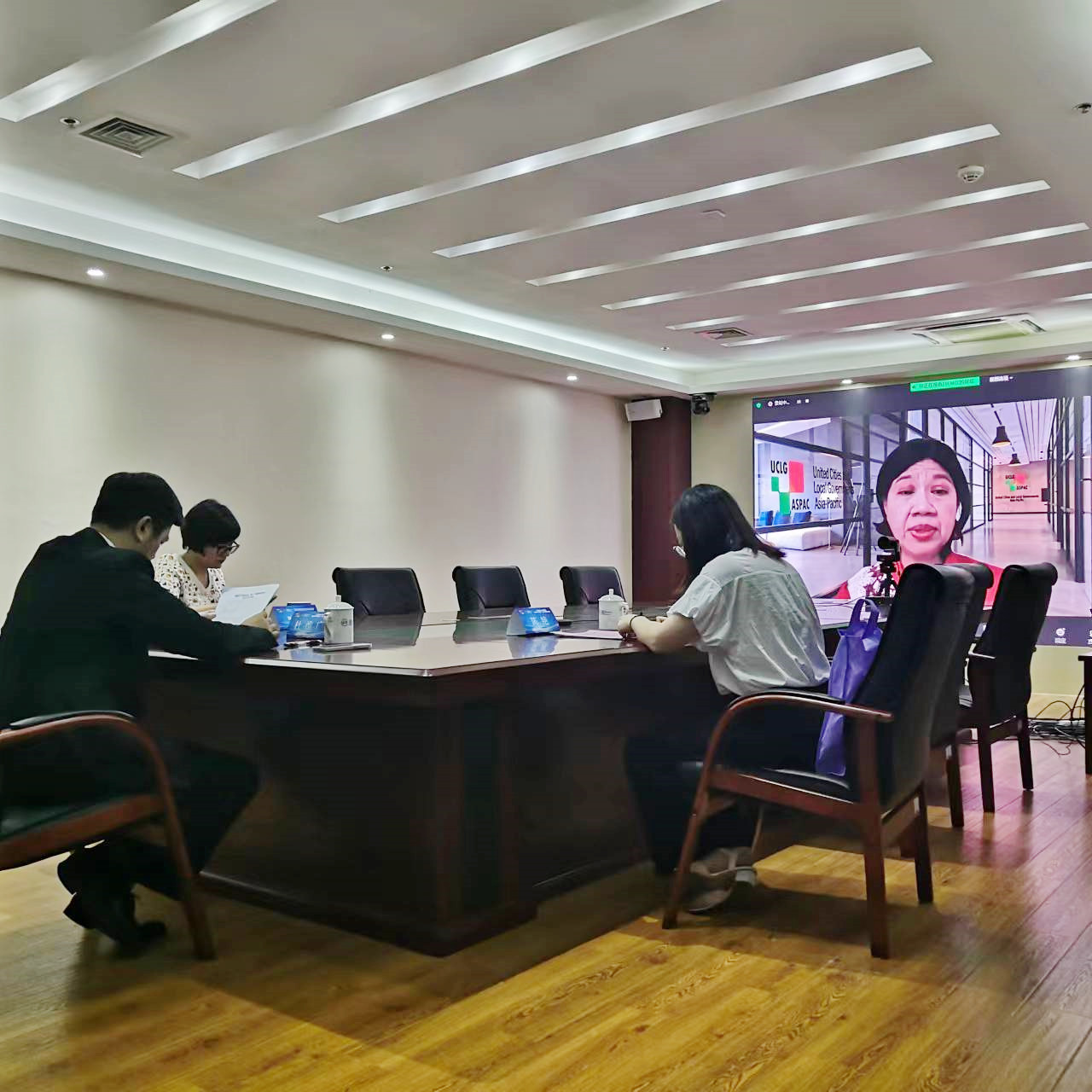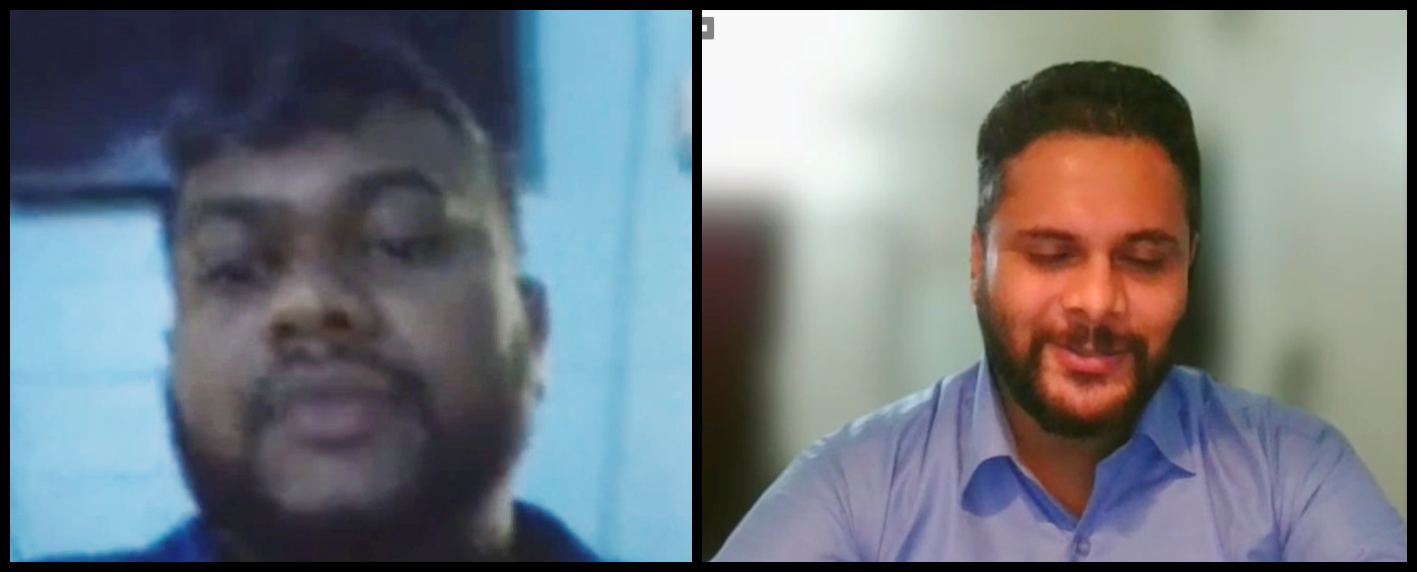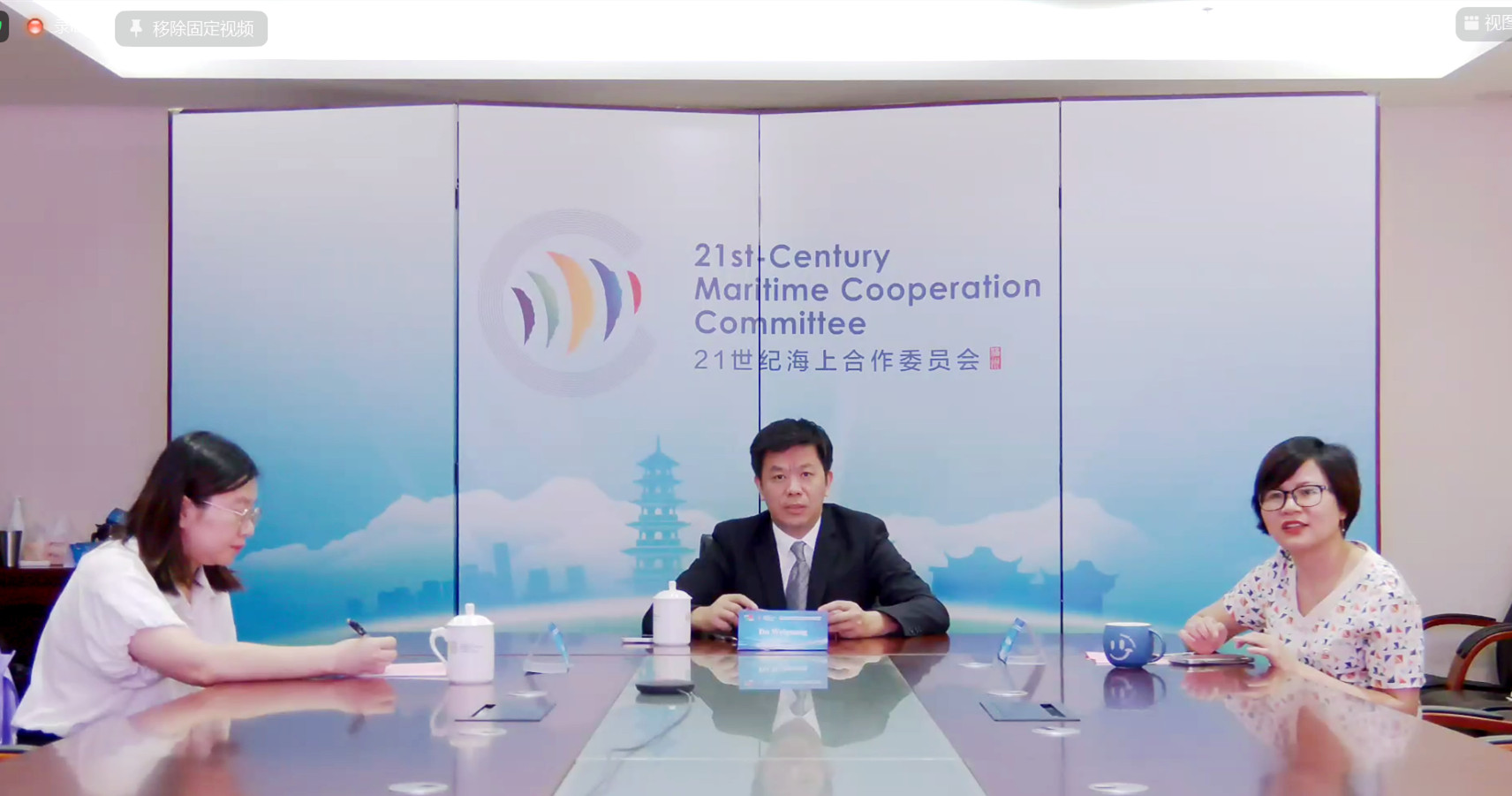




The closing ceremony of Online Workshop on Ocean and Climate Change is held via cloud meeting
On the afternoon of Sept. 16, the Online Workshop on Ocean and Climate Change, co-sponsored by United Cities and Local Governments Asia-Pacific (hereinafter referred to as “UCLG ASPAC”), UNESCO Beijing Cluster Office, China Center for Contemporary World Studies, International Department of Central Committee of CPC, and 21st-Century Maritime Cooperation Committee, concluded with success. Over 50 experts, scholars and representatives from Committee members, local governments and institutions in 14 counties, such as New Zealand, Indonesia, Nepal, Kenya, Sri Lanka, etc. met via the online platform.
During the 3-day event, six experts from Fujian Provincial Climatology Center, Xiamen University, Makassar City of Indonesia, Minjiang University and the National Institute of Oceanography Pakistan gave lectures on topics of “Global warming is accelerating, it is urgent to combat climate change——Starting from the unprecedented high temperature weather in China this year”, “Interaction of Climate Change and Macroalgae in a Changing Ocean”, “Mitigation of climate change impact with reclamation in Makassar”, “Ocean Hypoxia and Ecological Effects under Global Climate Change”, “Sea Ice and Climate Change”, and “Climate Change, its Impacts on the Coastal Zone and Implications”, which were warmly welcomed by the participants.
During Panel Discussion, based on their own expertise and the practices of their local governments and organizations against climate change, representatives from County Government of Mombasa, Kenya, Municipal Commission of Sri Jayawardenapura Kotte Municipal Council, Sri Lanka, All India Institute of Local Self Government, and Patuakhali Science and Technology University, Bangladesh, had a lively exchange. Mr. Abdul Salam, Director of Climate Change, County Government of Mombasa, Kenya, said that Kenya is currently experiencing multi-faceted climate impacts, which creates various challenges for economic development and poverty reduction, and that there is a need to mitigate climate change and address relevant issues through establishing strong policies. Mr. MD Abdur Rahim, Doctoral Student of UCAS, China and Associate Professor of PSTU, Bangladesh, said that the lectures had important implications for Bangladesh to overcome ocean challenges and develop blue economy. He expressed his hope for all parties to unite and work together to tackle climate change. The six lecturers also attended the Penal Discussion and answered questions on questions such as how to balance marine environmental protection and sustainable blue economy development in coastal cities of developing countries.

Speeches by representatives of participants
At the closing ceremony, Dr. Bernadia Irawati Tjandradewi, Secretary-General of UCLG ASPAC, addressed the audience by a video message. She thanked the 21st-Century Maritime Cooperation Committee for the excellent work in implementing the capacity building on marine and climate change. She emphasized that ocean conservation and action should do by us and there should be solidarity and coordination. She pointed out that all stakeholders should respond to the challenge of oceans and climate change under the guidance of United Nations’ Decade of Action and the UNESCO’s Decade of Ocean. The Mayor of Georgetown City, Guyana, and the Economic Development Officer of Dhankuta Municipality, Nepal and the Adviser of Local Councils Association of Khyber Pakhtunkhwa, Pakistan spoke as representatives of participants. They said that the workshop had in-depth elaboration on various angles of ocean and climate change, and provided new ideas for the global response to climate change under the new situation. They thanked the Committee for organizing this event and looked forward to continuous exchanges and cooperation with all parties in the future for jointly promoting regional ocean governance and addressing the challenges of climate change.

Representatives of Fuzhou at the closing ceremony
Mr. Du Weiguang, Deputy Director of the Foreign Affairs Office of Fuzhou Municipal People's Government and Deputy Secretary General of 21st-Century Maritime Cooperation Committee, delivered the brief summary speech on behalf of the Secretariat of the Committee. He pointed out that through this workshop, we gained a better understanding of the harms of climate change and the response measures of countries and regions. The idea of marine protection and green development is now more deeply rooted in our hearts. “Though the workshop is closing, the cases and experience shared will serve as the foundation for future cooperation. Facing the new developments, let us build consensus, act upon the concept of green and low-carbon development, deepen cooperation, and promote the sustainable development of the marine economy to build a community of human-nature harmony”, said Mr. Du.
Source: 21CMCC